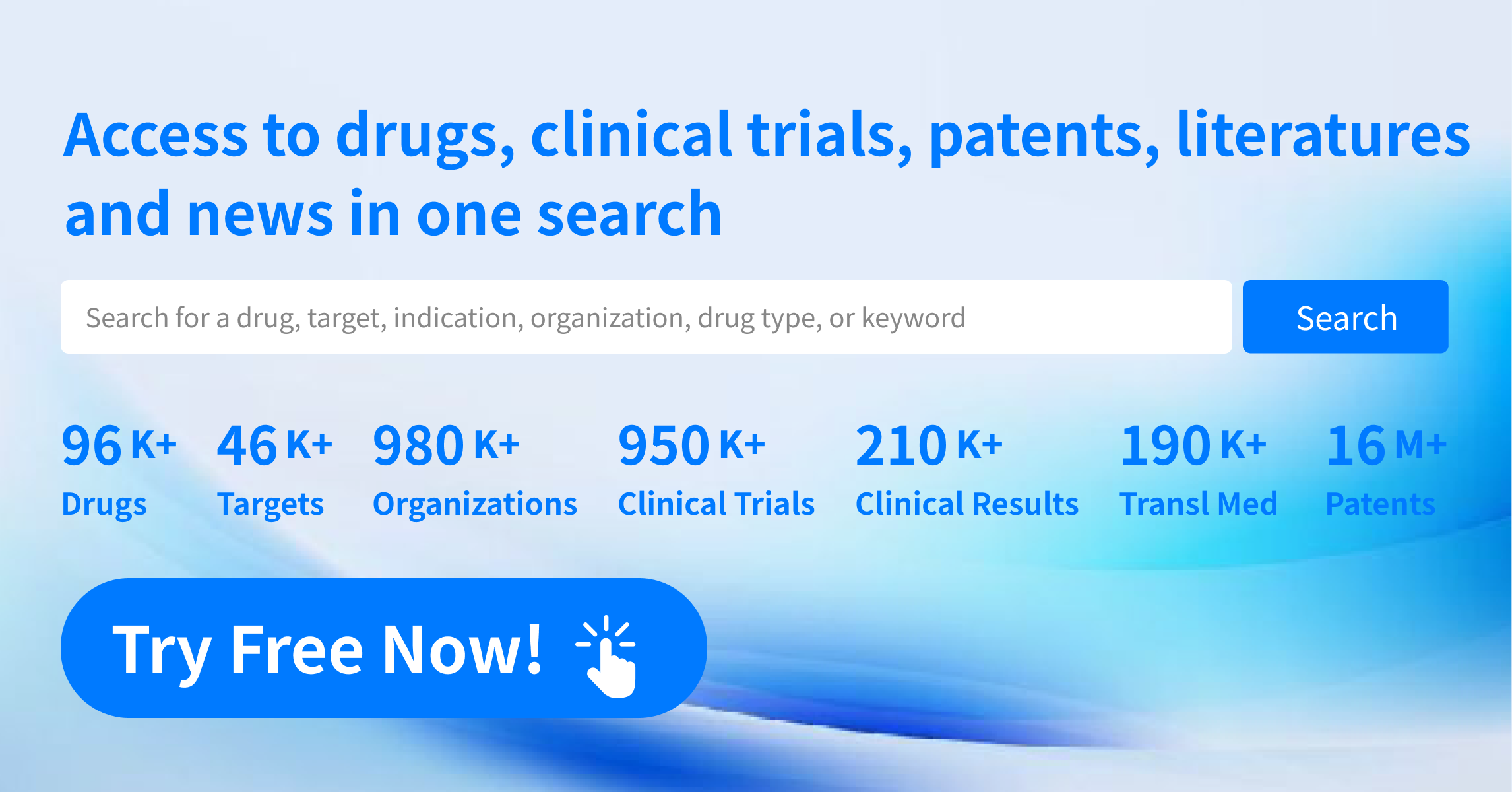Pharma Frontiers: Daily Digest of Global Pharmaceutical News – Sep 28
1.Bristol-Myers Squibb's New Schizophrenia Drug Approved for Marketing
On September 26, according to the FDA website, Bristol-Myers Squibb (BMS)’s new schizophrenia drug Cobenfy (a combination of xanomeline and trospium chloride, branded as KarXT) has been approved for marketing. This marks the first approval of a treatment for schizophrenia with a novel mechanism of action in 60 years.
KarXT is an oral muscarinic antipsychotic drug composed of xanomeline, an M1 and M4 muscarinic acetylcholine receptor (M-AChR) agonist, and trospium chloride, an M-AChR antagonist. The approval is based on positive results from three clinical studies evaluating the efficacy and safety of KarXT compared to placebo in patients with schizophrenia (Phase II EMERGENT-1, Phase III EMERGENT-2, and Phase III EMERGENT-3 trials). In November 2023, Karuna Therapeutics initially submitted the New Drug Application (NDA) for KarXT to the FDA. Less than a month later, BMS announced the acquisition of Karuna for $14 billion. Additionally, the rights to KarXT in China (including Hong Kong, Macau, and Taiwan) belong to Zai Lab. In November 2021, Zai Lab and Karuna signed a licensing and collaboration agreement to introduce KarXT.
2.Sanofi’s Dupilumab Approved in China for Treating COPD
On September 27, Sanofi announced that its IL-4Rα antibody dupilumab injection has been approved by the NMPA for the treatment of adult patients with eosinophilic chronic obstructive pulmonary disease (COPD) who are inadequately controlled. According to Sanofi's press release, this approval in China is based on the results of two Phase III clinical studies (the BOREAS and NOTUS trials), which demonstrated that dupilumab significantly reduced exacerbations, improved lung function, and enhanced health-related quality of life.
Dupilumab is the first IL-4Rα antibody approved by the U.S. FDA and was jointly developed by Sanofi and Regeneron. Through its dual-target mechanism acting on IL-4 and IL-13, it blocks type 2 inflammation pathways and reduces pathological responses associated with type 2 inflammation, offering a mechanism-based treatment for type 2 inflammation-related diseases. In China, dupilumab was first approved by the NMPA in June 2020 for the treatment of moderate-to-severe atopic dermatitis in adults. Since then, it has been approved for various indications in China, including the treatment of moderate-to-severe atopic dermatitis in children aged 6 to 11, severe atopic dermatitis in infants aged 6 months to 5 years, maintenance therapy for nodular prurigo in adults, and for asthma in adolescents aged 12 and above.
3.AbbVie's Small Molecule Monotherapy for Parkinson's Disease Succeeds in Phase III Study
On September 26, AbbVie announced positive results from its pivotal Phase III TEMPO-1 study evaluating tavapadon, a D1/D5 dopamine receptor partial agonist, as a monotherapy for early-stage Parkinson’s disease. TEMPO-1 is a 27-week, randomized, double-blind, placebo-controlled Phase III study that enrolled 529 Parkinson’s patients aged 40 to 80 years with a disease duration of less than three years. The study aimed to assess the efficacy, safety, and tolerability of tavapadon at two fixed doses (5 mg and 15 mg, once daily) as a monotherapy for adults with early-stage Parkinson’s disease. Results showed that the study met its primary endpoint, with patients receiving tavapadon showing statistically significant reductions (improvements) in the combined score of Part II and Part III of the MDS-Unified Parkinson's Disease Rating Scale (MDS-UPDRS) compared to placebo.
4.Merck Initiates New Phase III Trial of TROP2 ADC in China
On September 26, the Drug Clinical Trial Registration and Information Disclosure Platform revealed that Merck has initiated a Phase III clinical trial of MK-2870 injection (rusvastuzumab, SKB264) in China to compare the efficacy and safety of MK-2870 with the physician’s choice of treatment (TPC) as a second-line therapy in patients with recurrent or metastatic cervical cancer. Rusvastuzumab is a TROP2 antibody-drug conjugate (ADC) co-developed by Merck and Kelun Botai Biomedicine. In China, two New Drug Applications (NDAs) for rusvastuzumab have already been submitted, one for locally advanced or metastatic triple-negative breast cancer (TNBC) and the other for EGFR-mutated non-small cell lung cancer (NSCLC). This newly registered study is a randomized, active-controlled, parallel-group, open-label, international multi-center Phase III clinical trial, aimed at comparing the efficacy and safety of rusvastuzumab versus the physician’s choice of treatment as a second-line therapy for recurrent or metastatic cervical cancer. Previously, several other Phase III clinical trials of rusvastuzumab have been initiated in China, covering additional indications such as hormone receptor-positive (HR+)/HER2-negative breast cancer, endometrial cancer, gastric cancer, and esophageal cancer.
5.Hengrui Pharmaceutical Unveils First PBD Toxin-Based ADC Targeting ROR-1
On September 26, Hengrui Pharmaceutical updated its patent through the Patent Cooperation Treaty (PCT), revealing a new patent for its ROR-1 ADC drug, with patent number WO2024193691. This ADC uses a PBD (pyrrolobenzodiazepine) toxin, marking Hengrui’s expansion into the next generation of ADCs beyond Camptothecin and Eribulin toxins. The antibody was selected from a fully human semi-synthetic library and is compared to the parent antibody of VelosBio's ROR-1 ADC drug, zilovertamab vedotin, which Merck acquired in 2020 for $2.75 billion. For the ADC construct, Hengrui developed 13 PBD-based ADC drugs using its proprietary PBD toxin, employing site-specific conjugation through the N297 glycan. It is speculated that the final structure will use ADC-4, with a drug-to-antibody ratio (DAR) of 2. Merck’s zilovertamab vedotin, the most advanced ROR-1 ADC, is currently in Phase II clinical trials and is composed of a ROR-1-targeting monoclonal antibody linked to VC-MMAE, with a DAR of 4. Clinical studies are ongoing for multiple solid and hematologic tumors.
6.BeiGene Announces Latest FDA ODAC Voting Progress for PD-1 Inhibitor in ESCC and G/GEJ Indications
On September 27, BeiGene announced that the U.S. FDA’s Oncologic Drugs Advisory Committee (ODAC) endorsed the benefit-risk profile of PD-1 inhibitor tislelizumab, including its use as a first-line treatment for patients with PD-L1 expression levels greater than 1% in locally advanced unresectable or metastatic esophageal squamous cell carcinoma (ESCC) and gastric/gastroesophageal junction cancer (G/GEJ). The committee reviewed efficacy and safety data from the Phase III RATIONALE-305 (G/GEJ) and RATIONALE-306 (ESCC) studies, as well as data from pivotal trials for two other approved PD-1 inhibitors for these indications. By a vote of 10 to 2, with one abstention, the committee determined that the benefit-risk ratio does not support the use of PD-1 inhibitors in G/GEJ patients with PD-L1 expression levels below 1%. Similarly, by a vote of 11 to 1, with one abstention, the committee concluded that the benefit-risk ratio does not support the use of PD-1 inhibitors in ESCC patients with PD-L1 expression levels below 1%. The PD-L1 expression threshold voting result is recommended to apply to all PD-1 inhibitors under discussion for treating this patient population.
7.Junshi Biosciences Introduces Small Nucleic Acid Nasal Spray Drug
On September 26, Junshi Biosciences’ subsidiary, Juntuo Biomedical, signed a licensing and collaboration agreement with Nanjing JSIAMA Biopharmaceutical. Under the terms of the agreement, JSIAMA grants Juntuo Biomedical exclusive rights in Greater China to develop, improve, manufacture, produce, use, apply for, register, commercialize, and otherwise utilize the licensed product based on the licensed intellectual property. The two parties will also collaborate on the development of the IAMA-001 nasal spray project outside of Greater China. Juntuo Biomedical will pay an upfront payment of RMB 40 million to JSIAMA. Based on the development progress of the licensed product, Juntuo will pay up to RMB 240 million in research and development milestones for the Greater China region. Additionally, Juntuo will pay JSIAMA up to USD 150 million in milestones for research and development outside Greater China, following regulatory approval for the product’s first indication by the U.S. and European authorities. Juntuo will also make milestone payments to JSIAMA of up to RMB 250 million based on sales performance in Greater China and pay a sales royalty based on a single-digit percentage of annual net sales in the region. The two parties have agreed to share all rights and profits from the licensed product outside of Greater China on a 50:50 basis.
How to obtain the latest research advancements in the field of biopharmaceuticals?
In the Synapse database, you can keep abreast of the latest research and development advances in drugs, targets, indications, organizations, etc., anywhere and anytime, on a daily or weekly basis. Click on the image below to embark on a brand new journey of drug discovery!




